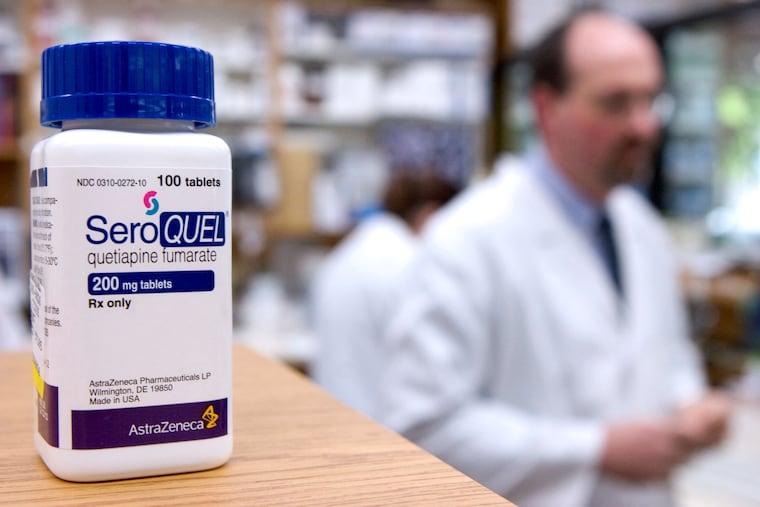AstraZeneca settles Texas drug suits for $110 million
Texas accused the pharmaceutical giant of promoting its antipsychotic drug Seroquel to Texas Medicaid providers for unapproved uses, and for misrepresenting the benefits of its cholesterol medication Crestor.

AstraZeneca has agreed to pay $110 million to settle two lawsuits brought by the state of Texas claiming the drugmaker fraudulently marketed two of its medications.
Texas accused the pharmaceutical giant in 2014 of promoting its antipsychotic drug Seroquel to Texas Medicaid providers for unapproved uses, and for misrepresenting the benefits of its cholesterol medication Crestor.
According to Bloomberg, the state originally sought roughly $5 billion from AstraZeneca, whose U.S. headquarters are in Wilmington, alleging the company's misleading marketing scheme resulted in "excessive reimbursements" from Texas' Medicaid program.
One of the whistle-blowers in the case, a former AstraZeneca salesperson named Allison Zayas, was represented by James J. Pepper of the Pepper Law Firm in Jamison, Bucks County. Pepper was the trial counsel for the case.
Texas claimed the drug company fraudulently promoted the drugs despite agreeing to not engage in off-label marketing as part of a 2010 deal with the federal government over prior allegations of Medicaid fraud.
Among other allegations, Texas claimed the company promoted Seroquel to pediatric psychiatrists even though the Federal Drug Administration had not approved the drug for children and adolescents. The state also accused the drugmaker of paying $465,000 in kickbacks to two state mental-health officials to recommend prescriptions of Seroquel.
"The allegations that led to this settlement are especially disturbing because the well-being of children and the integrity of the state hospital system were jeopardized," Texas Attorney General Ken Paxton said in a statement.
The company was accused of falsely claiming that Crestor had more uses than tests supported, while downplaying its risk of diabetes.
AstraZeneca is paying $90 million to resolve the Seroquel suit and $20 million over Crestor. The drugmaker admits no wrongdoing in the settlement.
"While AstraZeneca denies the allegations, it is in the best interests of the company to resolve these matters and to move forward with our business of discovering and developing important, life-changing medicines — while avoiding the delay, uncertainty, and expense of protracted litigation," a company spokesperson said in a statement.
Of the $110 million total, Texas recovered $45.8 million including legal fees, the federal government received $32.8 million, and six private plaintiffs and their lawyers collected $31.4 million.
"For over eight years my client remained steadfast in her fight to hold AstraZeneca accountable for its conduct. Today marks the successful conclusion of that fight," Pepper, the local lawyer for Zayas, said in a statement.
AstraZeneca is facing a separate lawsuit from Zayas, the federal government, and several states, including New Jersey, alleging illegal marketing practices for Seroquel. That case is before the U.S. District Court for the Eastern District of New York.
Pepper, who is representing Zayas in that case, as well, declined to comment on that lawsuit.